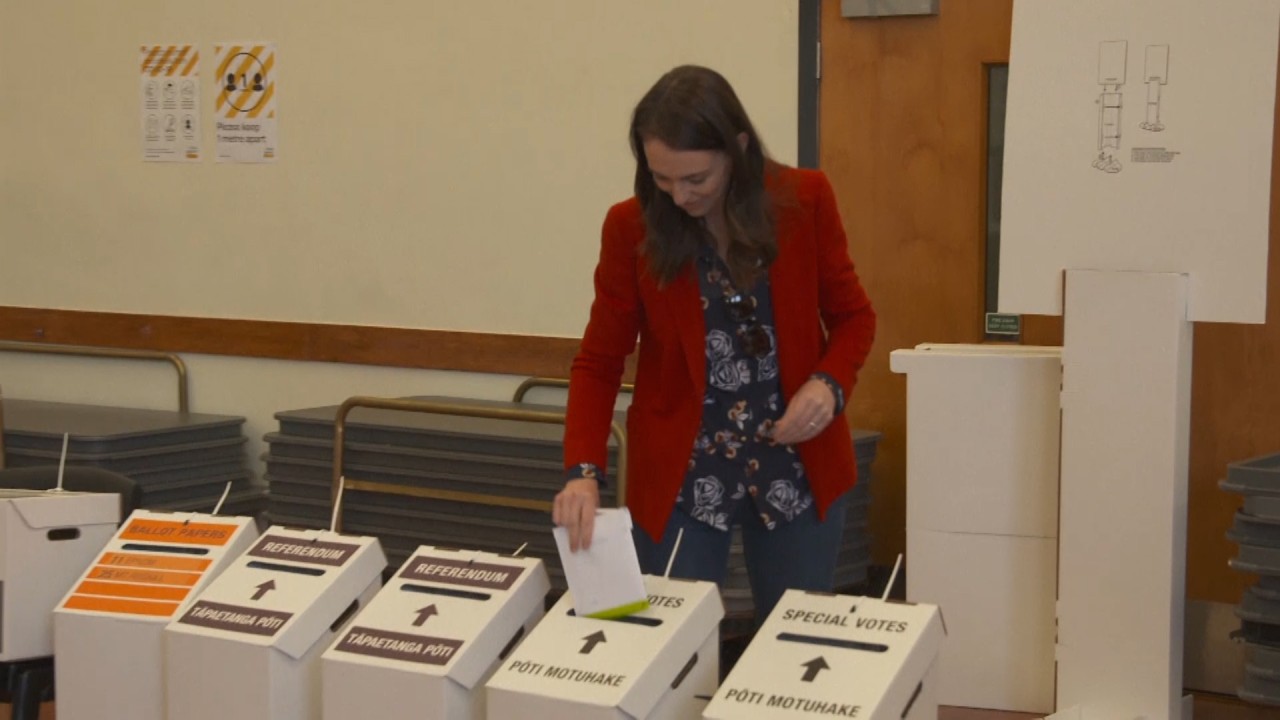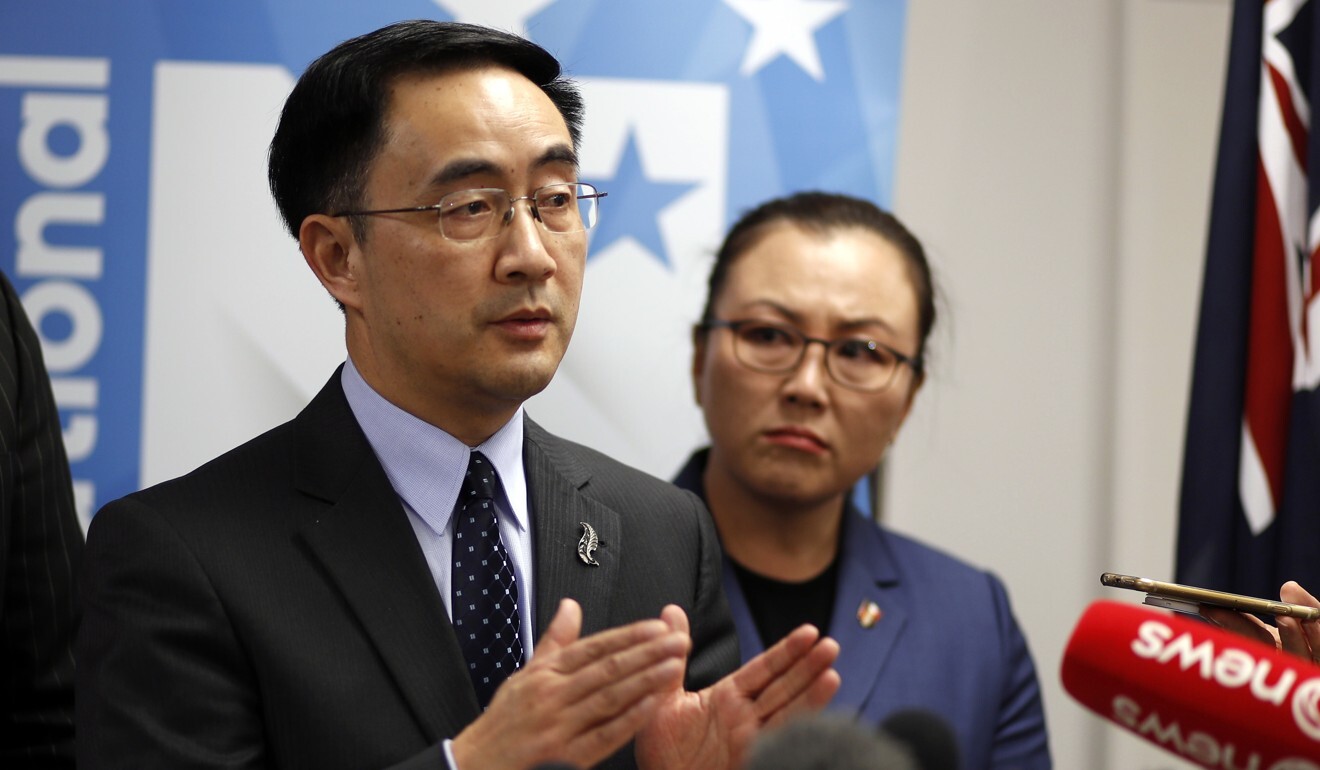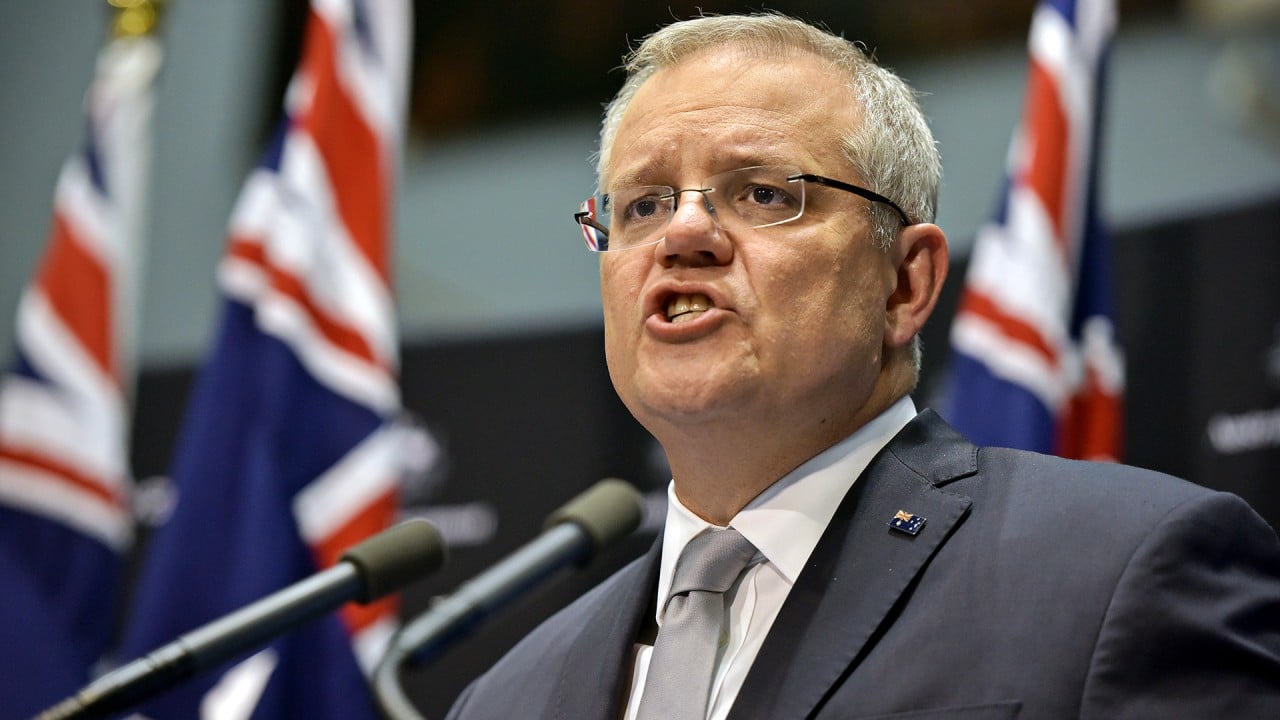
As New Zealand votes, Jacinda Ardern’s Labour government walks fine line on China ties
- China has barely registered a mention as a major issue before the October 17 election – a reflection of how harmonious relations with Beijing have been
- This less-confrontational approach contrasts with that of Wellington’s Five Eyes intelligence partners, whose contentious dealings with China have led to frayed ties
On paper, China should loom large in New Zealand’s parliamentary elections later this month.

01:01
New Zealand Prime Minister Jacinda Ardern casts her vote ahead of general elections
But in an election that is widely expected to return Jacinda Ardern as prime minister on October 17, China has barely registered a mention – a reflection, in part, of how harmonious Wellington has managed to keep relations with Beijing, compared with its anglophone peers.
Why is the Five Eyes intelligence alliance in China’s cross hairs?
While Australia and New Zealand’s other Five Eyes alliance partners – the Britain, Canada and the United States – wrestle with their most acrimonious relations with China in decades, New Zealand is walking a fine line that has allowed it to largely avoid blowback from its biggest trading partner, even while upholding many of the same policies and positions as its Western allies.
“New Zealand is more diplomatic and probably makes much better use of behind-closed-door channels to convey its displeasure over matters in dispute,” said Alexander Gillespie, a professor of international law at the University of Waikato. “I would not say New Zealand is afraid, but I would say it is aware of how much is at risk if it pushes too hard.”
Despite often emulating her Western counterparts on substantive policy, Ardern, whose centre-left Labour Party has been leading the rival National Party by double digits for weeks, has taken a distinct, less confrontational tack towards Beijing.
Could expatriate vote help ‘Jacinda-mania’ sweep New Zealand?
On a visit to Beijing last year, Ardern reportedly raised concerns about the treatment of Uygurs in Xinjiang, but only in private, and earlier this year told a business summit that while relations were “in good shape”, the sides had “different perspectives” on issues including the “situation of the Uygur people”.
New Zealand suspends extradition treaty with Hong Kong

Robert Patman, a professor of international relations at the University of Otago, said while there were voices in New Zealand who argued that Beijing’s political influence activities had reached a “critical level”, that view was “contested, and New Zealand’s more nuanced foreign policy probably means it will not be targeted in the same way as Australia, which is seen in Beijing to be much closer to Washington”.
Although the National Party is sometimes seen as slightly more dovish due to its pro-business stance, Ardern’s approach reflects a long-standing bipartisan consensus on outreach to China, whose purchases of New Zealand exports have quadrupled since the signing of a free-trade agreement in 2008.
China berates New Zealand for backing Taiwan’s bid for WHO observer status
New Zealand, which is home to about 5.7 million people, has a long history of independent foreign policy despite its isolated location and close links to larger Western powers.
“New Zealand has maintained an independent foreign policy for the last 35 years,” said Paul Clark, a professor of Chinese at the University of Auckland. “We are able to keep our distance from disputations on all sides. I think Beijing respects that and may even find it helpful. New Zealand can be a useful bridge or testing ground for Beijing’s policies or behaviours.”
New Zealand’s ruling party aims to raise taxes to pay coronavirus debt
In the absence of any major disagreement on foreign policy, the contest between Ardern and National Party leader Judith Collins, a former lawyer, has focused on the recovery from the Covid-19 pandemic and bread-and-butter issues such as housing and health care.
“Foreign policy plays very little part in New Zealand parliamentary elections,” said Jason Young, director of the New Zealand Contemporary China Research Centre at Victoria University of Wellington. “There is generally a consensus among the major parties about foreign policy and very little difference between the two major parties.”
Young added: “The major parties have a similar strategy of calling out Chinese behaviour when needed while trying to maintain a working political relationship to facilitate economic relations and cooperation internationally.”

01:49
Australia suspends extradition treaty with Hong Kong, offers residency pathway for Hongkongers
But Young, the Victoria University of Wellington professor, said New Zealand, as a small country, could not be complacent about larger countries using “economic coercion to shape our foreign policy”.
“Any type of serious economic action on New Zealand would have a significant impact on public opinion here, which is already strained and would highlight long-term risks for New Zealand businesses, leading them to diversify out of the China market,” he said.
Hongzhi Gao, a senior research fellow at the NZ Contemporary China Research Centre at Victoria University of Wellington, said New Zealand could face challenges managing ties in the future as criticism of China inevitably increased in the country. “There will be more and more, and stronger and stronger voices and criticism of China in New Zealand in the coming months and years, depending on whathappens in China,” Gao said.
“These voices may not be what Beijing wants to hear, but, once again, New Zealand is a democracy, valuing freedom of speech,” he said.
“As long as the key politicians and key businesses in New Zealand are politically savvy and know how to get the politically natured message across without showing disrespect to China, New Zealand should not become the target.” ■
Additional reporting by Francine Chen

